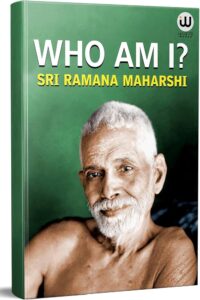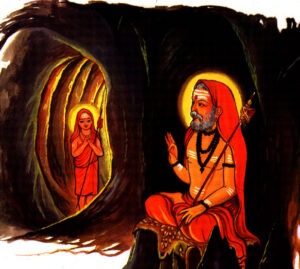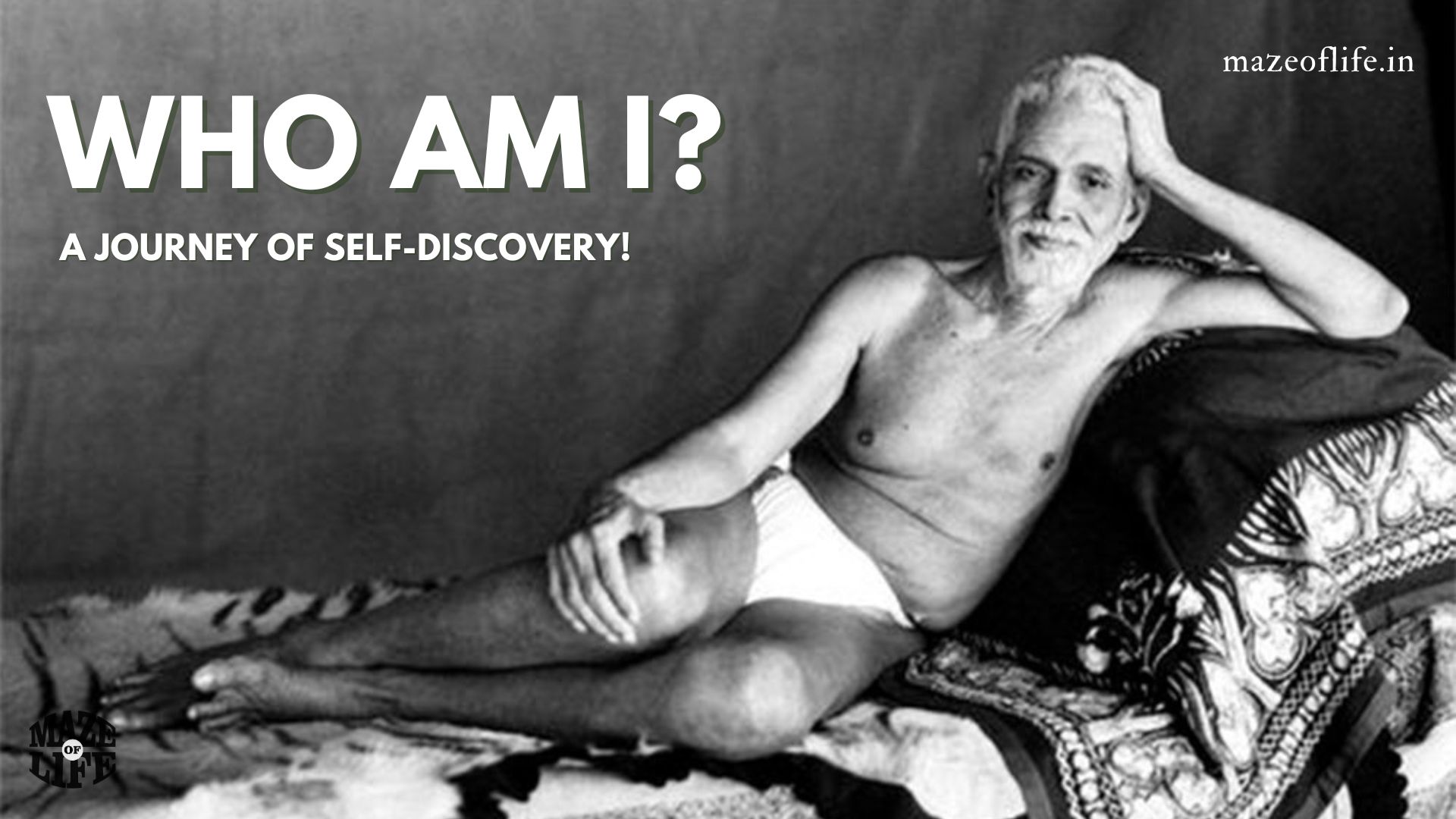
A Book That Shakes the Foundation of Self
Finished reading “Who Am I?” by Bhagwan Sri Ramana Maharshi a few months back. Since then read it a couple of times more. It is not just reading a book; it is stepping into a journey of self-discovery so profound that it shakes the very foundation of what we believe ourselves to be. It is not an ordinary book filled with philosophical arguments or intellectual complexities. Instead, it is a direct path inward. An invitation to silence the noise of the world and look at the only question that truly matters—Who am I?
The Mysterious Pull of the Book
I remember the first time, few years back I held this book in my hands. It was small, almost unassuming, yet something about it felt powerful. Even though I was curious I didn’t read it for some reason. May be the time is not just right. Or may be I am not ready at that point of time. Who knows? Everything in the world happens with divine intervention.
A Simple Yet Powerful Approach
As I turned the pages, I realised that Bhagawan Ramana Maharshi does not waste words. He does not lead the reader through layers of explanations or abstract concepts. He simply presents the question, and through it, he gently nudges us toward the answer that cannot be found in words but only in direct experience.
The Essence of Self-Inquiry
The essence of the book is self-inquiry. Instead of getting lost in the ever-changing tides of thoughts, emotions, and identities we wear like masks, Maharshi asks us to go deeper. Who is the one experiencing all this? Who is the “I” that says, “I am happy,” or “I am suffering”? Where does this sense of “I” arise from? It is a question so simple, yet so unsettling because it dismantles everything we think we know about ourselves.
A Shift in Perception
As I reflected on these words, I felt something shift within me. At first, there was resistance. My mind wanted to search for answers outside, to define myself through my roles, my past, and my beliefs. But the deeper I sat with the question, the more I realized that none of those things were truly me. They were passing clouds in the vast sky of my being. And beyond them, there was a silence—alive, boundless, and untouched by the fluctuations of life.
The Simplicity of the Teachings
One of the most striking things about Who Am I? is it’s simplicity. In just a few pages, Maharshi dissolves the illusion of separateness. He points out that our suffering comes from identifying with the body and mind, but our true nature is beyond both. He doesn’t ask us to believe him; he asks us to look for ourselves. And once we do, the truth reveals itself—not as a thought, but as an undeniable presence that has always been there, unnoticed.
A Book to Be Lived, Not Just Read
This book is not meant to be read and set aside. It is meant to be lived. The practice of self-inquiry is not something confined to meditation rooms or spiritual retreats; it can be done anywhere, in any moment. Whether I was walking, talking, or sitting in silence, I found myself returning to the question: Who is the one experiencing this? And every time, I felt a glimpse of something beyond words—a quiet recognition that I was not just this fleeting self, but something much vaster, much freer.
Who Am I? – A Call to Wake Up
Reading Who Am I? has been more than just an intellectual or spiritual experience for me. It has been a call to wake up from the dream of false identity, to rest in the space of awareness that has always been present. It is not always easy—the mind resists, distractions pull us away—but once this question enters your heart, it never truly leaves. It continues to work within, stripping away illusions until only truth remains.
The Beginning of a Lifelong Journey
This book gave me the starting point for a long journey towards myself. The answer is yet to be found, but the path has been illuminated. If you are looking for deep wisdom in the simplest of words, if you are tired of searching for happiness outside and feeling empty despite it all, then this book is for you. But be warned—it will not comfort your ego. It will shake the very ground it stands on. And yet, in that very shaking, you will find something you never imagined: yourself, as you truly are.
Sri Adi Shankaracharya on “Who Am I?

When Adi Shankaracharya approached his Guru Govindpada for education and Deeksha, the same question was once posed to by his Guru. When asked, “Who are you?” the young Shankara responded with what is now known as the Nirvana Shatakam, a set of verses describing the ultimate truth of the Self. He declared, “I am not the mind, nor the intellect, nor ego, nor memory. I am not the ears, the tongue, the nose, or the eyes. I am not even the space, nor earth, nor fire, nor air. I am pure consciousness, I am Shiva.” These verses are not just poetic; they are a profound declaration of self-realization. They strip away every false identification and leave only the pure awareness that remains untouched by the impermanent aspects of existence. This realization, the same truth Maharshi points towards, is the essence of our being—beyond body, beyond thought, beyond time.


